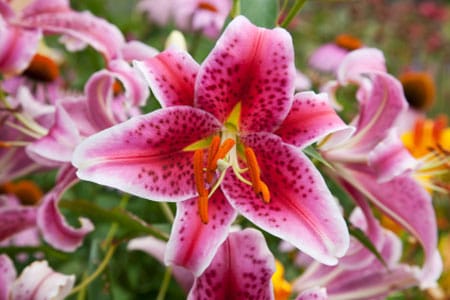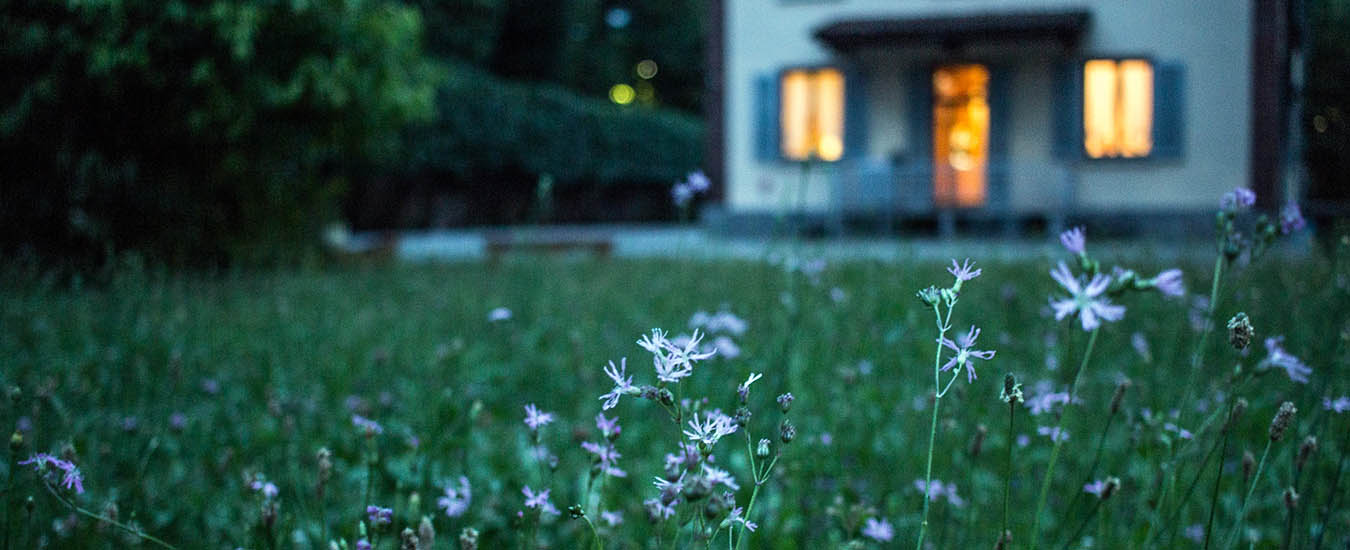Products to help you care for your lawn and garden organically.
Products to help you care for your lawn and garden organically.
Feed your soil, feed your plants. Plants take their nourishment from nutrients in the soil. All soils are not created equally when it comes to nutrient levels, and in most cases, you must fertilize your garden plants if you want them to thrive.
Feed your soil, feed your plants
Plants take their nourishment from nutrients in the soil. All soils are not created equally when it comes to nutrient levels, and in most cases, you must fertilize your garden plants if you want them to thrive.
With a new garden and lawn, you'd be wise to invest in a soil test, to give you some idea of whether your soil is acidic or alkaline and whether it is lacking in particular nutrients. There are soil-testing labs in each of the Atlantic provinces, typically listed under the provincial department of agriculture, where your soil will be analyzed for a modest fee, usually less than $50.
Choosing fertilizers can be exhausting and confusing, but remember that just as we shouldn't overeat, we shouldn't over-feed our plants. Too much of a particular fertilizer element can cause adverse effects in plants, like too much leafy growth when you're trying to produce a crop of fruits or vegetables, growth so lush it proves tempting to insects and other diseases, or fertilizer burn in roots and shoots of plants. If you're selecting a fertilizer, follow the instructions for application, and do so with a light hand.
There are a number of organic pre-mixed fertilizers on the market, some that are general or all-purpose products, others that are used for more specific tasks.
- Bone meal is rich in phosphorous (develops strong roots, shoots, flowers and fruits). It is used when planting shrubs, trees, and bulbs, and is applied at the bottom of digging holes before you add the plant or bulb.
- Blood meal is a good source of nitrogen, used to develop the vegetative (leafy) growth of plants such as green leafy vegetables. Water this product in well when you apply it around the edges of plants - don't sprinkle on leaves.
- Compost is a mild and effective all-round fertilizer that you can use throughout the season. Work it into your vegetable beds before planting, mix it into potting soil if growing veggies in containers, add a little to the planting hole before adding the transplant, tree or shrub. Composted manure is a good all-round fertilizer, and also improves soil condition by adding organic matter.
Liquid seaweed and fish fertilizers are good sources of micronutrients, and are especially good for containerized plantings, where you feed in watering solution every two weeks. You can apply kelp meal to beds or mix it into compost, but take care not to cover young plants or the crowns of perennials with this product.
Choose healthy plants or good quality seeds
For most gardeners, the best investment for your gardening buck is to buy plants that are healthy rather than struggling for life, or seeds from a reputable seed company rather than a dollar store bargain bin.
Match your plants to the appropriate growing conditions. The most important information to look for on plant labels is the plant's hardiness zone (how much cold it can tolerate for winter temperatures), whether it likes sun or shade, if it has particular tolerances to challenging conditions such as salt or drought, or whether it is deer or mildew resistant. If planning a vegetable garden in a cool climate such as near the coast, select seeds or transplants that reach maturity in fewer days instead of standard varieties that were bred in warmer regions of North America.

When bad things happen to good plants
If you have prepared your soil properly, bought healthy plants, and planted them according to their growing requirements, you'll likely find they can fight off attacks from occasional pests or diseases. If more serious tactics are necessary, there are options for treatment.
Please remember to follow the manufacturer's instructions when using any pesticide. Even though something might be labeled organic, it's still used to kill organisms, and may be harmful to beneficial insects such as bees and other pollinators. All chemicals, organic or conventional, should be kept out of reach of children and pets.
Weeds
- Corn gluten meal is used as a pre-emergent herbicide for lawns. It prevents germination of weed seeds, and must be applied as directed.
- Horticultural vinegar is a highly concentrated vinegar used as a herbicide at the edges of gardens, in walkways, between pavers, and in other locations where you can spot-treat weeds. It's not recommended for use in garden beds because it can also harm ornamentals and edibles.
Insects
There are a number of plant-based, organic insecticides on the market. These can be very effective against specific pests, but it's critical that you follow directions for use, so as not to kill off beneficial insects such as ladybugs (which eat aphids), bees, and other pollinators.
- Insecticidal soap is a well-known and long-used remedy both for houseplants and outdoor gardens. It's effective against spider mites, white flies, and aphids, but must be reapplied as directed.
- Neem oil is used to combat scarlet lily beetle, Japanese beetle, and other insects.
- Diatomaceous earth is a fine, dust-like particle used against slugs and other soft-bodied insects.
- Bacillus thurengiensis (Bt) is an organic insecticide that is effective against a variety of caterpillars and beetles.
Bacteria and fungi
To prevent outbreaks, choose disease-resistant types of your favourite plants, such as blackspot-resistant roses or mildew-resistant vegetables. Practice good garden hygiene, cleaning your tools and containers in hot soapy water with a little bleach added. Give plants adequate spacing to provide good air circulation, and dispose promptly of any diseased plant material by burning it - do not add diseased plants to your compost heap.
Finally, please remember: If a plant gets sick or is attacked by an insect or other pest, it's really not the end of the world. You now have a perfect reason to visit garden centres in search of healthy replacement plants.
